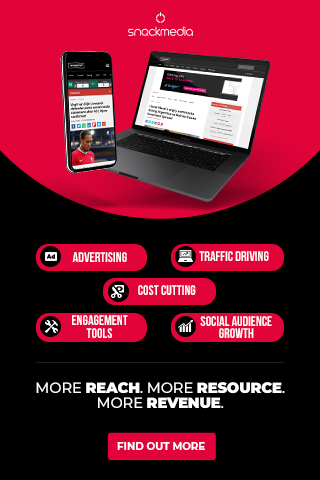Sport Communicators and Social Media – Next Steps
This seven-part series has considered whether sport PR needs the introduction of a bigger and a more detailed social media policy to prevent reputation damage and conflict arising between the individual and the organisation they represent.
The hypothesis set out for the research sought to prove how ‘Social Media policies in sports organisations need to address abuse by individuals to avoid negative effects on corporate reputation and control corporate image’. PR theory was considered to understand the demands of corporate reputation and how they are affected by the use of social media, and found wanting when it came to understanding the unique relationship between sportspeople and their organisations, as well as between clubs and their fans.
Secondary research laid the foundation to illustrate what kinds of stories are published via social media. Content analysis revealed the extent and nature of the problem, with three different categories of twitter traffic identified – tweeters, who help a corporate reputation, twits who are relatively harmless but not helpful and twats, who can be positively destructive.
The content analysis conducted on eleven sportspeople demonstrated, overwhelmingly, that inappropriate social media use is common throughout sport. That is not to say this use is always a negative, rather it includes missing opportunities to enhance the corporate reputation of one’s team. Footballers are the obvious target considering their global impact, but it is up to their corporate communicators to set policy and lead by example. Football already has a somewhat tarnished reputation and the fact it does not apply social media guidelines to common practice inevitably makes reputation management even more difficult.
The coexistence of social media and the traditional mass media will not be as easy to achieve in the arena of sports, as it might be in many corporate environments. Sportspeople have to be careful and review their own use of social media reconsidering the use of communications experts to guide them.
After all, a sportsperson is not a communication professional, and some help will be required to understand the risk to reputation. Self-regulation or self-censorship by sportspeople of their use of social media is an acquired skill, and needs corporate guidance. Quite simply, sportspeople need to be shown what ‘good’ looks like.
In a world where sport is increasingly commercial, global and driven by business principles, risk and reputation management may well prove to be the driving force behind a new approach to social media. The desired integration and alignment within companies of sportspeople and management require that a reputation must be built both ‘inside out’ and ‘outside in’.
Corporate Communicators may well be the initiator and driver of implementing a social media reputation approach, building a leading coalition with sportspeople and management. Bringing valuable insights on stakeholder opinion and potential risks to reputation to the boardroom and to the sportspeople’s minds, corporate reputation should be given the attention it deserves and earn corporate communicators a standing invitation to overall reputation strategy discussions. Introducing a social media policy should be the first big step in addressing online reputation management.
Corporate communicators should therefore be prepared to take the next steps. This research believes that the below list of recommendations are essential in making the best use of social media:
– Introduce the purpose of social media
– Be responsible for what you write
– Be authentic
– Consider your audience
– Exercise good judgment
– Understand the concept of community
– Remember to protect confidential information
– Bring value
– Productivity matters
– Prepare to face consequences and possibly expulsion
Further research is needed to confirm the findings and draw greater validity and authority should include the following:
– Widen the analysis by looking at the explicit relationship between corporate reputation and twitter traffic over a much longer period, across a broader range of sportspeople, and involving more than just the UK,
– Deepen the research, by applying the above framework to one specific club in which several different sports people are tweeting, to quantify the actual impact on corporate reputation of tweets, twits and twats.
– Break down the elements of corporate reputation and the role of power that resides with investors, rather than fans, and see whether social media has any impact
Please read and share the others in this series: 1. Sportsmen and Twitter: how they influence their communities 2. Why Sports Organisations Need Social Media Guidelines 3. Sports people’s views of Social Media and how people react to them 4. Why do fans follow Sports Stars on Social Media? 5. The Social Media battle between Corporate Communicators, Journalists & Sportstars 6. Why better Social Media policies are needed in SportAs this research and blog posts have proven, doing nothing about the use of social media is no longer an option. Corporate communicators and senior managers need to act now before more of its sportspeople become ‘Twats’ and before it has significant effect on corporate reputation.
About author
You might also like
SPORTEL 2021: Day One Recap
This year’s prestigious SPORTEL convention kicked off in sunny Monaco today, welcoming a host of familiar faces as well as plenty of new ones. Doors opened at 8:30am with businesses
Six Founding Riders Set To Bring The Vision Of The UCI Track Champions League To Life
Olympic Champions, UCI World Champions and World Record holders join the new track cycling competition debuting in November 2021 The UCI Track Champions League is delighted to announce that six
Sports related spending to soar this summer as pre-pandemic life resumes
New insights from eBay Ads UK reveal the potential for brands to engage with an excited but nervous nation as sports events get back on track As pubs and indoor








